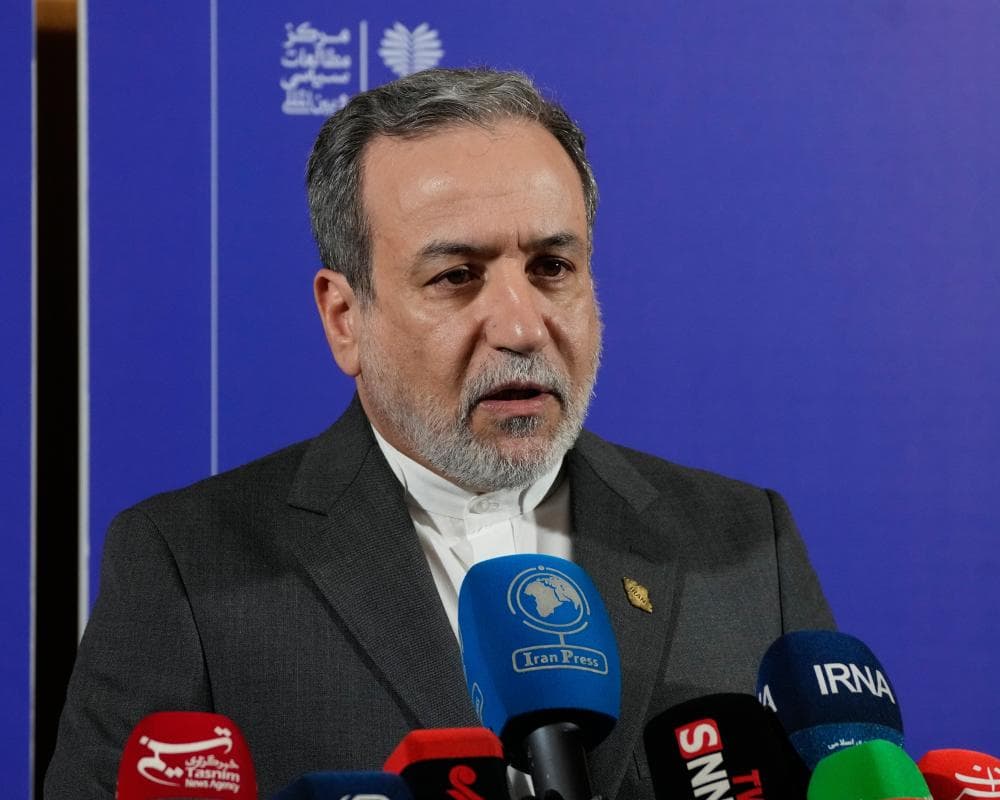Iran says it could rejoin US nuclear talks if treated with ‘dignity and respect’

Click any word to translate
Original article by Patrick Wintour in Tehran
Tehran is willing to restart nuclear talks with Washington as long as it is treated with “dignity and respect”, Iran’s foreign minister has told the Guardian.
Abbas Araghchi said only diplomacy worked, and disclosed fresh requests had come from intermediaries to reopen negotiations with the Trump administration. He said Iran did not have any undeclared nuclear sites, and Tehran could not yet allow the UN nuclear inspectorate to visit bombed nuclear sites for security reasons.
Araghchi is treading a difficult path since Iran does not want be seen to be acting from a position of weakness, and he insisted repeatedly that Iran had emerged stronger militarily and psychologically from the Israeli-US attack on its nuclear sites in June.
He was speaking at a security conference in Tehran where he restated that Iran had “an inalienable right to enrich uranium domestically that it will never give up” – the primary cause of the impasse in the previous talks.
The previous five rounds of talks between the US and Iran were brought to an abrupt and acrimonious end on 12 June when Israel, with US support, attacked Iranian nuclear sites in a 12-day war that ended with Donald Trump claiming the sites had been obliterated. Subsequently, European countries used their right to reimpose UN-wide sanctions, but Iran insists they have not had a major impact.
Iranian officials said they felt they had reached a “magic solution” to the enrichment issue in previous talks, when it was agreed an Iran-based consortium, with American involvement, could enrich uranium. Both sides would have been able to claim victory since domestic enrichment would have continued and the US could be confident that Iran’s nuclear programme was exclusively peaceful.
It had not been agreed in the talks that US nuclear scientists could operate inside Iran, but that was a logical implication of the consortium proposal. Officials claimed three times they had reached agreement with Trump’s special envoy Steve Witkoff only for the deal to collapse due to “spoilers in Washington”.
Iranian officials said the consortium offer was now off the table, but it seems highly likely the proposal could be revived in some form if talks reopen.
Trump last week said he had been receiving messages that Iran wanted to reopen negotiations, but privately Iranian officials say they are not yet receiving coherent offers from Washington either directly or from key regional mediators, such as Qatar, Egypt, Oman and Saudi Arabia. The Iranian foreign ministry has been accused of passivity in the face of Trump’s direct instinctive approach, but Tehran says diplomacy is not part of a show.
In his speech to the forum, designed to paint the US as a hegemonic power that misuses the concept of international law, Araghchi said the 12-day war showed the conflict could not be ended by military means. He said the attacks started with a US demand for an unconditional Iranian surrender and ended with an unconditional call for a ceasefire.
Iran is convinced the initial Israeli attacks were mounted with full US knowledge and coordination, making trust hard to restore.
Araghchi said: “It was not Iran that had fled diplomacy; it was America and the western countries that had always sought to impose their will during the negotiations. Diplomacy can still be alive and remains the ultimate solution to resolve disputes, but its criteria, rules and principles must be adhered to.
“If they speak to the Iranian people with the language of dignity and respect, they will receive a response in the same language.”
In what is described by Iranian officials as the battle of repair and recovery, Araghchi said he was confident Iran’s defence capabilities “are much stronger than before 13 or 14 June of this year. All our capabilities have been restored. We learned many lessons from this war; we have come to know our own weaknesses and the weaknesses of the enemy.”
He added: “We successfully passed this war. Our nuclear technology, which they intended to destroy, remains in place. The facilities and equipment, if destroyed, will be rebuilt; what is important is the will of the Iranian people and then the national cohesion that they targeted, but failed to break. The Iranian people have become stronger, more united, and more supportive of the government and the state in the face of this invasion.”